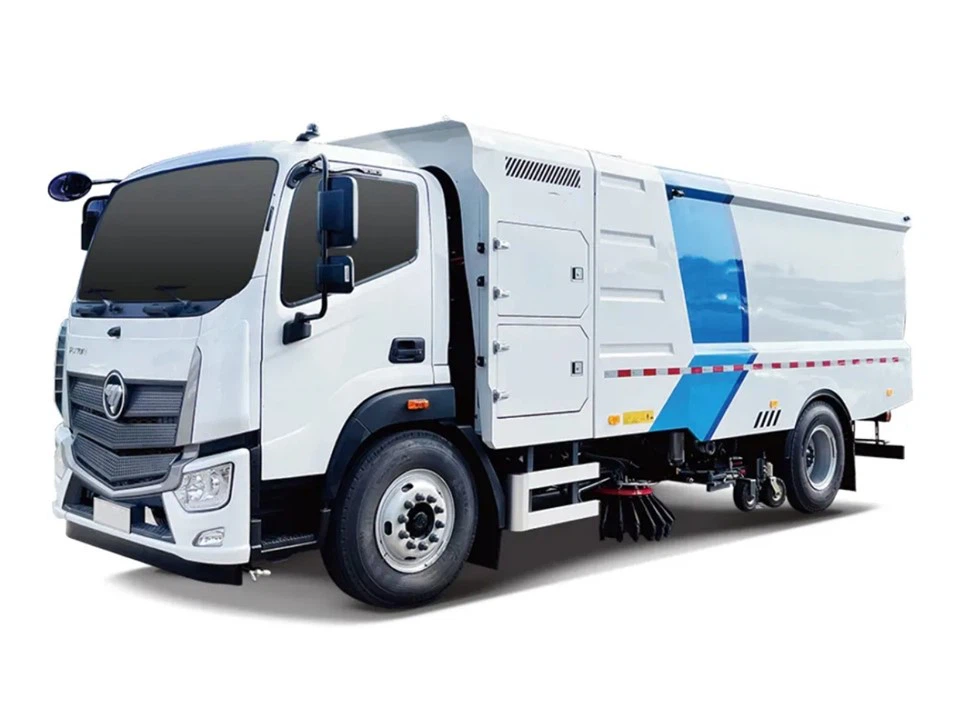Understanding the Garbage Truck Engine: A Comprehensive Guide

The garbage truck engine is a crucial component of waste management operations, providing the power needed to transport refuse from residential and commercial areas to disposal or recycling sites. This comprehensive article will delve into the different types of engines used in garbage trucks, their specifications, maintenance needs, environmental considerations, and much more. Whether you are a waste management professional, a truck enthusiast, or simply curious about how these vehicles operate, this guide will provide you with all the information you need.
1. The Basics of Garbage Truck Engines
1.1 What is a Garbage Truck Engine?
A garbage truck engine is the powerhouse of the vehicle, responsible for converting fuel into mechanical energy to facilitate the collection and transportation of waste. These engines need to be robust and reliable due to the demanding nature of waste collection operations.
1.2 Key Components of a Garbage Truck Engine
- Fuel System
- Turbocharger
- Exhaust System
- Cooling System
- Electrical System
1.3 Types of Garbage Truck Engines
Garbage trucks typically feature diesel engines due to their durability and efficiency. However, there are other alternatives such as compressed natural gas (CNG) engines and electric engines emerging in the market.
1.3.1 Diesel Engines
Diesel engines remain the most common choice for garbage trucks because of their high torque output and fuel efficiency. They perform well under heavy loads, making them ideal for waste collection.
1.3.2 Compressed Natural Gas Engines

CNG engines are becoming increasingly popular as a cleaner alternative to diesel. They produce fewer emissions and contribute to a reduced carbon footprint.
1.3.3 Electric Engines
Electric garbage trucks are still in the early stages of adoption, but they offer a sustainable option for urban waste collection, producing zero tailpipe emissions.

2. Garbage Truck Engine Specifications
2.1 Engine Size and Power
The size and power of a garbage truck engine can vary significantly based on the truck’s design and intended usage. Most garbage truck engines range from 5.9 liters to over 12 liters, producing anywhere from 200 to 500 horsepower.
2.2 Torque Output
Torque is a critical factor in garbage truck engines because their primary function is to move heavy loads. High torque facilitates effective hauling capacity. Most engines have a torque output between 500 to 700 lb-ft.
2.3 Fuel Economy
Fuel efficiency is vital for operational cost management in waste collection. Diesel garbage trucks typically offer a fuel economy of 6 to 8 miles per gallon, while CNG engines may have slightly lower efficiency.
| Engine Type | Horsepower | Torque (lb-ft) | Fuel Economy (mpg) |
|---|---|---|---|
| Diesel | 300 – 500 | 500 – 700 | 6 – 8 |
| CNG | 200 – 350 | 400 – 600 | 5 – 7 |
| Electric | Varies | N/A | N/A |
3. Maintenance of Garbage Truck Engines
3.1 Regular Maintenance Practices
Regular maintenance is essential to ensure the longevity and efficiency of a garbage truck engine. Key maintenance practices include:
- Regular oil changes
- Air filter replacements
- Fuel system inspections
- Cooling system checks
3.2 Common Engine Issues

Some common issues faced by garbage truck engines include:
- Overheating
- Fuel contamination
- Oil leaks
- Filter blockages
3.3 Tips for Extending Engine Life
To extend the life of a garbage truck engine, consider the following tips:
- Keep the engine clean and free of debris.
- Use high-quality fuel and lubricants.
- Monitor engine performance regularly.
- Follow the manufacturer’s maintenance schedule.
4. Environmental Impact of Garbage Truck Engines
4.1 Emissions Standards
Garbage truck manufacturers must comply with stringent emissions standards set by various environmental agencies. This has led to advancements in waste collection technology, resulting in cleaner engines.
4.2 The Role of Alternative Fuels
The introduction of CNG and electric engines is a response to growing environmental concerns. These alternative fuels significantly reduce harmful emissions and contribute to urban air quality improvements.
4.3 Innovative Technologies
New technologies such as hybrid engines and advanced catalytic converters are being explored to further reduce the environmental impact of garbage truck engines.
5. Innovations in Garbage Truck Engine Technology
5.1 Hybrid Engines
Hybrid garbage trucks combine traditional diesel engines with electric motors, optimizing fuel efficiency and reducing emissions during low-speed operations.
5.2 Smart Engine Systems
Smart technology is being integrated into garbage truck engines, utilizing sensors to monitor engine performance and fuel efficiency in real-time. This can lead to proactive maintenance and improved operations.
5.3 Future Trends
The industry is witnessing a trend toward fully electric garbage systems, particularly in urban environments, as cities strive to meet sustainability goals.
6. The Importance of Employee Training
6.1 Operator Training Programs
Proper training for garbage truck operators is essential for safe and efficient use of the vehicle. Training should cover both the operation of the truck and regular maintenance tasks.
6.2 Importance of Safety Protocols
Safety protocols must be a key component of training, ensuring that operators are aware of the risks associated with working near heavy machinery.
7. Economic Considerations in Garbage Truck Engine Selection
7.1 Cost of Ownership
When selecting a garbage truck engine, it’s crucial to consider the total cost of ownership, which includes initial purchase, maintenance, fuel costs, and potential repairs.
7.2 Operational Efficiency
Operational efficiency not only impacts fuel consumption but also influences the overall effectiveness of waste collection services. Choosing the right engine can lead to significant savings over time.
8. FAQ Section
8.1 What type of fuel do garbage truck engines typically use?
Garbage trucks most commonly use diesel fuel, but there are also options for compressed natural gas (CNG) and electric engines.
8.2 How often should garbage truck engines be serviced?
Garbage truck engines should be serviced according to the manufacturer’s recommendations, typically every 5,000 to 10,000 miles, or as necessary based on usage.
8.3 Are electric garbage trucks practical?
Yes, electric garbage trucks are becoming more practical as battery technology improves, making them a viable option for waste collection in urban areas.
8.4 What factors influence the choice of a garbage truck engine?
Key factors include fuel type, torque and horsepower needs, environmental regulations, and total cost of ownership.
8.5 Can I retrofit a diesel garbage truck to use CNG?
Yes, it is possible to convert a diesel garbage truck to CNG, although it requires specific modifications and compliance with safety regulations.
8.6 What are the benefits of using CNG engines over diesel?
CNG engines produce fewer emissions, have lower fuel costs, and can reduce dependence on fossil fuels, contributing to a more sustainable waste management operation.
